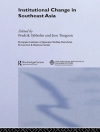Thomas Henry Huxley’s ‘On the Reception of the ‘Origin of Species’ delves into the controversial reception of Charles Darwin’s groundbreaking work ‘On the Origin of Species’. Huxley, known as Darwin’s Bulldog for his staunch advocacy of evolution, provides a detailed examination of the responses and criticisms faced by Darwin’s theory of natural selection. Huxley’s writing style is eloquent and analytical, offering a scholarly perspective on the scientific and societal implications of Darwin’s work in the 19th century. In the context of Victorian England, Huxley’s book serves as a key text in the study of the evolution debate and the development of evolutionary thought. Huxley’s insights shed light on the intellectual climate of the time and the challenges faced by proponents of evolutionary theory against religious and social opposition.
Yazar hakkında
Thomas Henry Huxley (1825–1895) was a prominent English biologist and anthropologist primarily known for his advocacy of Charles Darwin’s theory of evolution, earning him the nickname ‘Darwin’s Bulldog’. Huxley’s eloquence and rigorous scientific approach were instrumental in the widespread acceptance of evolutionary biology. In his seminal work ‘On the Reception of the ‘Origin of Species” (1887), Huxley championed Darwin’s ideas and meticulously addressed the myriad reactions and criticisms that followed the publication of ‘On the Origin of Species’. A prolific writer, his works ranged from technical papers on comparative anatomy to essays on education and philosophy. Huxley was renowned for his skillful articulation, which combined clarity and wit. As a leader in the scientific community, his contributions included serving as President of the Royal Society and helping to establish the renowned journal ‘Nature’. His literary and scientific endeavors laid the foundation for modern biological science and educational reform. Huxley’s work is marked by a commitment to empirical evidence and reason, which has left an indelible mark on the field of evolutionary biology and the broader discourse on science and religion.












